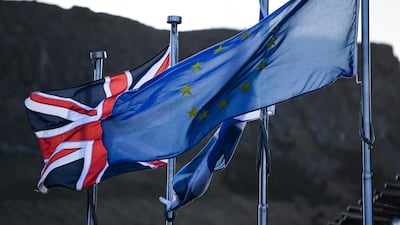European unity began to fray Wednesday after the Brexit withdrawal agreement was shot down by the British parliament, leading to demands for new solutions to the prospect of the break-up of the bloc.
There were the first signs of individual member states considering a break in the uni
ted EU lines by suggested their own solutions to the impasse. Alexander Dobrindt, the CSU leader in the German Bundestag, alluded to possible bilateral damage control by calling for Germany to engage in direct talks with London.
The EU does “consist of states,” he said, suggesting Germany should “make further efforts” to engage in negotiations.
“My impression is that it won’t work without a German initiative,” he said.
Chancellor Angela Merkel gave mixed signals on how her country intended to tackle Mrs May’s defeat. According to British media, Mrs Merkel told Mrs May in a Sunday morning phone call that she would step in to help secure success in future votes should the deal be shot down by Parliament. A spokesperson later retracted, saying the chancellor had made no assurances beyond those agreed upon by the European Council.
Leader of Ireland’s Democratic Unionist Party (DUP) Arlene Foster said Britain was right to reject the EU deal and that they would work constructively with the government to get a better deal.
"The House of Commons has sent an unmistakable message to the prime minister and the European Union that this deal is rejected," Mrs Foster said.
_____________________
Read more:
Brexit chaos exposes UK's diminishing clout on the world stage
British pound trades flat after Brexit vote but volatility to linger
_____________________
"Mrs May will now be able to demonstrate to the Brussels' negotiators that changes are required if any deal is to command the support of Parliament.” Officially, the EU spoke in unison through statements released by Commission President Jean-Claude Juncker and European Council President Donald Tusk’s spokesman Preben Aamann expressing their disappointment and stressing that the exit deal will not be renegotiated.
Mr Aamann said the EU will proceed with the process of ratification of the existing deal. "This agreement is and remains the best and only way to ensure an orderly withdrawal of the United Kingdom from the European Union,” he said.
French President Emmanuel Macron, who received news of the vote after a seven-hour long meeting with local officials as part of his national debate strategy to solve ongoing protest fair-ups, entertained the possibility of making minor adjustments to the deal when offering his analysis of Britain’s options.
“First option, they go towards a no deal. They say: ‘there is no deal’. That’s scary for everybody. The first losers in this would be the British,” Mr Macron told mayors in Normandy.
“Second option, they tell us - in my view, that’s what they’ll do, I know them a bit - ‘we’ll try to improve what we can get from the Europeans and we’ll get back for a vote’,” Macron said, according to Reuters.
“In that case, we’ll look into it, maybe we’ll make improvements on one or two things, but I don’t really think so because we’ve reached the maximum of what we could do with the deal and we won’t, just to solve Britain’s domestic political issues, stop defending European interests.”
In a third scenario – which the French President deemed to be the most likely – Britain will ask for more time to and postpone any decision on an agreement.
This “creates a great deal of uncertainty and worries,” he said.
Manfred Weber, the leader of the European People's Party group in the Parliament and the front-runner candidate for European Commission president, echoed this sentiment. “The ball is in the field of our British friends," he said. "Please, please tell us finally: What do you want to achieve?"
The British government now faces a no-confidence vote, which renders the country’s path out of the European Union even more fraught with uncertainties.

